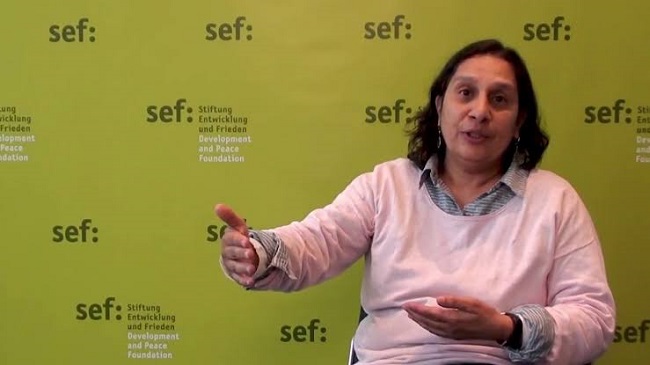Speakers at a press briefing on Tuesday, October 26, 2021 by the Climate Action Network (CAN) have called on governments to be honest about the scale of the climate crisis at the upcoming UN climate talks, COP26, in Glasgow, UK.

As world leaders prepare to meet next week, civil society speakers from across the network emphasised that the real test of success is whether the outcome from Glasgow will be based on equity and science and meet the immediate needs of communities worst affected by the climate crisis.
Climate Action Network, supported by over 300 civil society groups and coalitions, on Tuesday sent an open letter to Alok Sharma, COP26 President, and Heads of Delegations demanding that finance for loss and damage (the unavoidable climate impacts from decades of warming) be delivered at COP26.
Just days before the summit, rich countries indicated they would break obligations to deliver the much-promised annual $100 billion by 2020, with the delivery now postponed to 2023.
The three-year delay is a serious betrayal of faith and signals the lack of solidarity and trust to ensure that finance reaches developing countries even as climate impacts mount.
Discussion at COP26 must centre on how this shortfall will be met in the next few years and a post-2025 climate finance target that will generate finance in the trillions.
Outstanding discussion on the Paris Agreement rules, such as on carbon markets, must focus on rules designed to produce actual emission reductions that do not rely on offsets and on junk credits traded between countries. A swiss-cheese approach to carbon market rules, one full of loopholes, must be rejected outright, they added.
Pelenise Alofa, National Coordinator, Climate Action Network Kiribati, Kiribati, said: “For us in Kiribati, loss and damage from climate change is now a permanent feature of our lives. It is not a onetime event or disaster. It is about rising sea levels that threaten to totally swallow our home of thousands of years. It is about a continuous water crisis from the contamination of water sources from repeated sea surges and food insecurity as land becomes impossible to cultivate over time.
“It is about the loss of culture, identity and our heritage- which can never be replaced or remunerated. It is time that the UN climate talks, starting with COP26, make a commitment to address loss and damage and deliver on finance for it. Not just discussions but concrete binding commitments that go beyond technical reports and websites and actually help rebuild lives and livelihoods.”
Bobby Peek, Director, groundWork, & representing the Africa Coal Network, South Africa: “In 2019 for the first time in history two cyclones, Idai and Kenneth, landed on the east coast of Africa in a single season. Approximately 850 000 people were affected, with around 146 000 internally displaced, more than 500 killed by Cyclone Idai alone. Mozambique asked for $3.2 billion for loss and damage but received pledges for only $1.2 billion. Pledges which have not been tracked nor delivery verified in the public domain. At COP26, loss and damage must be beyond pledges, it must be a commitment to real money, tracked, delivered and publicly accounted for.”
Li Shuo, Global Policy Advisor, Greenpeace East Asia, China: “COP26 needs to keep 1.5C in sight. We urge countries to deliver what they promised. Ambition and implementation should be two sides of the same coin. Striking a balance between them will help unlock a deal in Glasgow.”
Rachel Cleetus, Policy director, Climate and Energy Programme, Union of Concerned Scientists, USA: “A top priority at the Glasgow climate summit must be delivering on robust international finance so developing countries can make a low-carbon transition and protect people and ecosystems from climate impacts.
“Yesterday’s climate finance delivery plan announced by the U.K. government falls short of what’s needed despite some recent pledges from countries. More than a decade ago, richer nations – which have historically contributed the lion’s share of global warming emissions – pledged to mobilise $100 billion annually by 2020 yet have failed to meet that threshold.
“The burgeoning climate crisis means the needs of countries are even more acute now. It’s imperative that richer nations detail how they intend to make up the past shortfall and commit to raising significantly more, on the order of trillions, to meet their obligations to developing and climate-vulnerable nations going forward.”
Anaid Velasco, Legal Research Manager, Centro Mexicano de Derecho Ambiental & CAN Latin America, Mexico: “COP26 is the perfect opportunity for countries to show they have learned from the recent extreme climate events. Rich and poor, all countries have suffered severe climate impacts in the recent past. Accelerating ambition and enhancing NDCs from the major emitters are a *must* under climate justice principles. Equity and human rights must guide the adoption of improved and progressive commitments aligned with a 1.5C pathway.”
